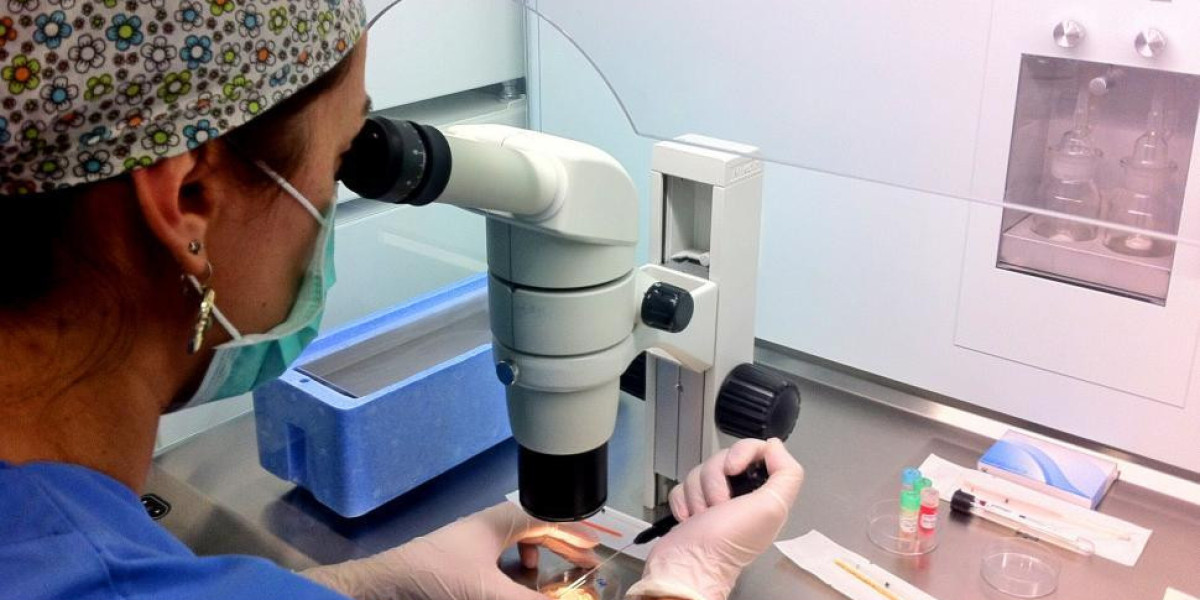Infertility can be a challenging journey for many couples and individuals, but advancements in reproductive medicine have opened doors to hopeful possibilities. In-vitro fertilization (IVF) is one of the most effective and widely used fertility treatments. If you are considering IVF, understanding the role of a fertility doctor in the process is essential. For those in Bihar, consulting a Fertility Doctor In Patna can provide specialized guidance and care throughout the treatment. This article breaks down the steps of IVF and the critical role a fertility doctor plays at every stage.
Understanding IVF: A Brief Overview
In-vitro fertilization (IVF) is a process that involves combining eggs and sperm outside the body in a laboratory setting. The resulting embryos are then transferred to the uterus to achieve pregnancy. IVF is often recommended for individuals facing challenges such as:
Blocked or damaged fallopian tubes.
Low sperm count or motility.
Endometriosis.
Unexplained infertility.
Genetic conditions.
A fertility doctor oversees every step of the IVF process, ensuring the treatment is tailored to the patient's unique needs.
Initial Consultation: Building the Foundation
The IVF journey begins with an initial consultation. This step allows the Fertility Doctor in Patna or any other location to evaluate your medical history, lifestyle, and reproductive health.
Key Roles of the Fertility Doctor During Consultation:
Medical History Review: The doctor discusses your medical history, previous pregnancies, and any underlying health conditions.
Diagnostic Tests: A range of tests, including blood tests, ultrasounds, and semen analysis, is conducted to identify the root cause of infertility.
Customized Treatment Plan: Based on the findings, the fertility doctor designs a personalized IVF treatment plan.
Ovarian Stimulation: Preparing the Eggs
The next step in the IVF process is ovarian stimulation, where the fertility doctor administers hormonal medications to stimulate the ovaries to produce multiple eggs.
The Fertility Doctor’s Role:
Medication Guidance: The doctor prescribes and monitors injectable hormones such as follicle-stimulating hormone (FSH) and luteinizing hormone (LH).
Monitoring Follicle Growth: Through regular ultrasounds and blood tests, the doctor tracks the development of ovarian follicles to ensure the optimal response.
Adjusting Dosages: Based on the response to medication, the fertility doctor may adjust hormone dosages to avoid complications like ovarian hyperstimulation syndrome (OHSS).
Egg Retrieval: Collecting the Eggs
Once the follicles have matured, the fertility doctor schedules an egg retrieval procedure. This minor surgical procedure is performed under sedation and is critical for the IVF process.
The Fertility Doctor’s Role:
Trigger Injection Timing: The doctor determines the exact time to administer a trigger shot of human chorionic gonadotropin (hCG), which prepares the eggs for retrieval.
Performing the Procedure: Using a fine needle and ultrasound guidance, the doctor carefully retrieves eggs from the ovaries.
Quality Assessment: The retrieved eggs are immediately assessed for quality and maturity in the laboratory.
Fertilization: Creating the Embryos
In the laboratory, the collected eggs are combined with sperm to create embryos. This process can be done through conventional fertilization or intracytoplasmic sperm injection (ICSI).
The Fertility Doctor’s Role:
Choosing the Method: The doctor determines whether traditional fertilization or ICSI is more appropriate based on sperm quality and other factors.
Monitoring Embryo Development: The doctor oversees the growth and development of embryos over several days to ensure their viability.
Embryo Transfer: Implanting the Embryo
After the embryos have developed, one or more are selected for transfer to the uterus. This is a crucial step in the IVF process.
The Fertility Doctor’s Role:
Embryo Selection: The doctor uses advanced techniques to select the healthiest embryos for transfer.
Performing the Transfer: The doctor uses a thin catheter to place the embryo into the uterus, a procedure typically guided by ultrasound.
Luteal Phase Support: Post-transfer, the doctor may prescribe progesterone supplements to support the uterine lining and improve implantation chances.
Post-Transfer Care: Monitoring and Support
The period following embryo transfer is critical, and the fertility doctor remains involved to monitor progress and provide support.
The Fertility Doctor’s Role:
Monitoring Pregnancy Hormones: Blood tests are conducted to measure hCG levels, which indicate whether the embryo has implanted successfully.
Addressing Concerns: The doctor provides guidance on managing stress, lifestyle adjustments, and any symptoms experienced during this stage.
Next Steps: In case of an unsuccessful cycle, the fertility doctor discusses future options, such as additional IVF cycles or alternative treatments.
The Role of Fertility Doctor in Emotional Support
IVF can be emotionally and physically taxing. A compassionate Fertility Doctor in Patna not only provides medical care but also offers emotional support and encouragement throughout the journey. Many fertility clinics also have counselors or support groups to help patients navigate the process.
Why Choose a Fertility Doctor in Patna?
For individuals in Bihar, consulting a Fertility Doctor in Patna ensures access to specialized care and advanced fertility treatments. Patna has a growing number of reputed fertility clinics equipped with state-of-the-art facilities and experienced professionals. Benefits include:
Personalized Care: Fertility doctors in Patna provide customized treatment plans tailored to individual needs.
Convenience: Accessing a local fertility clinic minimizes travel stress and ensures timely follow-ups.
Affordable Options: Fertility treatments in Patna are often more cost-effective compared to metro cities, without compromising on quality.
Also Read: Sleeping Position After Embryo Transfer
Conclusion:
IVF is a complex yet transformative process, and the fertility doctor plays a pivotal role at every stage. From initial consultations and ovarian stimulation to egg retrieval, fertilization, and embryo transfer, their expertise ensures the highest chances of success. If you’re seeking treatment, consulting a Fertility Doctor in Patna can offer you the guidance and support needed to navigate your fertility journey. With personalized care and advanced technology, fertility doctors are dedicated to turning your dream of parenthood into a reality.








